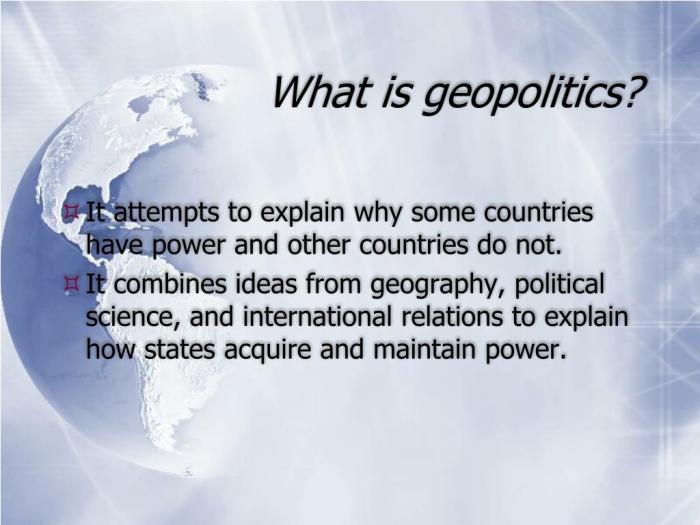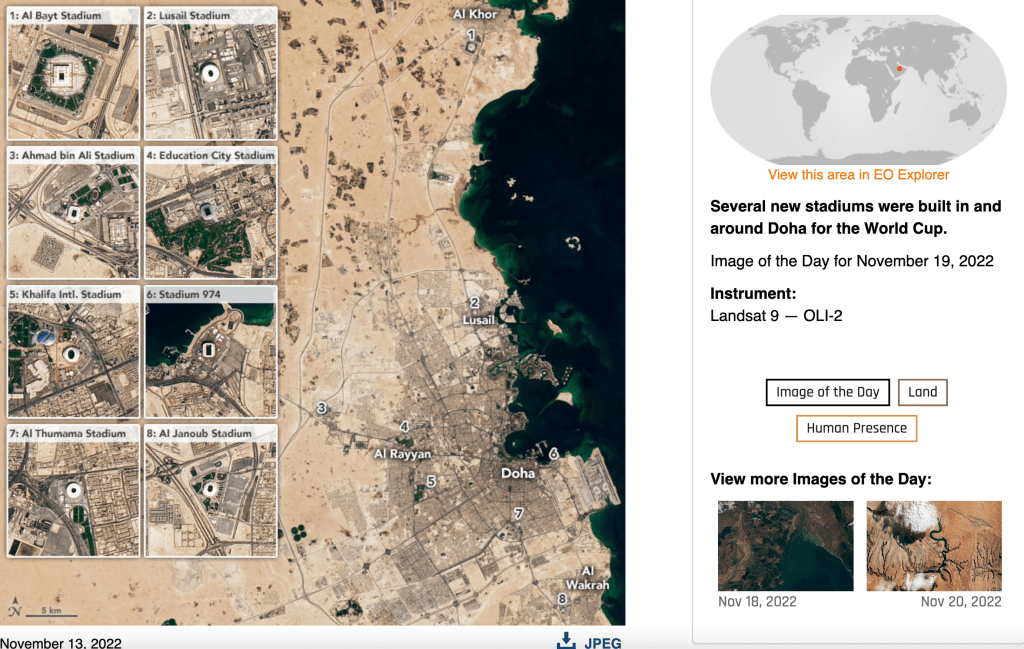Geopolitics ap human geography example – Geopolitics AP Human Geography: Exploring Interconnections and Global Dynamics is a comprehensive guide to the intricate relationship between geopolitics and human geography. It delves into the ways in which political decisions shape geographical landscapes and how geographical factors influence political outcomes, providing a nuanced understanding of the interplay between these two disciplines.
Throughout this exploration, we will examine specific geopolitical events and regions, analyze geopolitical theories and frameworks, and discuss methods for geopolitical analysis. We will also explore the role of geopolitics in addressing global issues and shaping regional dynamics, examining the impact of technology on geopolitical dynamics and speculating on potential future geopolitical scenarios.
Geopolitics and Human Geography: Geopolitics Ap Human Geography Example

Geopolitics and human geography are inextricably linked, with each influencing the other in a complex and dynamic relationship. Political decisions have a profound impact on geographical landscapes, shaping the distribution of populations, economic activities, and natural resources. Conversely, geographical factors, such as climate, topography, and access to water, can influence political outcomes, including the formation of states, the outbreak of conflicts, and the rise and fall of empires.
Case Studies of Geopolitical Influence
One striking example of the interplay between geopolitics and human geography is the case of the Suez Canal. The construction of the canal in the 19th century transformed the geopolitical landscape of the Middle East, connecting the Mediterranean Sea to the Red Sea and facilitating trade between Europe and Asia.
This had significant implications for the global economy and the balance of power in the region.
Geopolitical Theories and Frameworks
Various geopolitical theories and frameworks have been developed to explain the relationship between geography and politics. One influential theory is the “heartland theory,” proposed by Halford Mackinder, which argues that control of the Eurasian heartland is essential for global domination.
Other theories include the “rimland theory,” which emphasizes the importance of controlling the coastal regions of Eurasia, and the “sea power theory,” which highlights the strategic significance of naval power.
Methods for Geopolitical Analysis, Geopolitics ap human geography example
To analyze geopolitical issues, researchers employ a range of methods, including historical analysis, comparative studies, and quantitative modeling. Historical analysis examines past geopolitical events to identify patterns and lessons that can be applied to the present. Comparative studies compare different geopolitical regions or events to highlight similarities and differences.
Quantitative modeling uses mathematical and statistical techniques to simulate geopolitical scenarios and predict potential outcomes.
Geopolitics and Global Issues
Geopolitics plays a critical role in addressing global issues, such as climate change, resource scarcity, and terrorism. Climate change, for example, has geopolitical implications due to its potential to disrupt global food production, increase the frequency and severity of natural disasters, and displace populations.
Cooperation among nations is essential to mitigate the effects of climate change and ensure a sustainable future.
Geopolitics and Regional Dynamics
Geopolitical patterns and trends vary across regions, reflecting the unique geographical, historical, and cultural factors that shape each region. For example, the geopolitical dynamics of the Middle East are influenced by the region’s vast oil reserves, the presence of major religious sites, and its proximity to Europe and Asia.
Understanding regional geopolitical dynamics is crucial for formulating effective policies and maintaining stability.
Geopolitics and Technology
Technological advancements have a profound impact on geopolitical dynamics. The development of new technologies, such as satellites, drones, and artificial intelligence, has transformed the way geopolitical events are analyzed and understood. Technology can also be used to monitor and influence geopolitical events, such as by providing real-time information about troop movements or by disrupting enemy communications.
Geopolitics and the Future
The future of geopolitics is uncertain, but it is likely to be shaped by a number of factors, including the rise of emerging powers, the increasing interconnectedness of the global economy, and the challenges posed by climate change and other global issues.
Human geography will continue to play a vital role in shaping geopolitical outcomes, as the distribution of populations, economic activities, and natural resources will influence the balance of power and the course of future events.
Key Questions Answered
What is the relationship between geopolitics and human geography?
Geopolitics and human geography are closely interconnected disciplines that explore the relationship between political power and geographical space. Geopolitics focuses on the political and strategic aspects of this relationship, while human geography examines the social, cultural, and economic dimensions.
How do political decisions impact geographical landscapes?
Political decisions can have a profound impact on geographical landscapes. For example, the construction of dams, roads, and other infrastructure projects can alter the physical environment and affect the distribution of resources. Political decisions can also lead to the displacement of populations and the redrawing of borders.
What role do geographical factors play in shaping political outcomes?
Geographical factors can play a significant role in shaping political outcomes. For example, the location of a country’s borders, its access to natural resources, and its climate can all influence its political stability and economic development.

